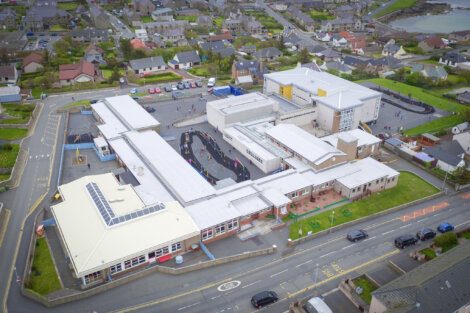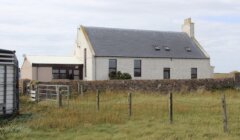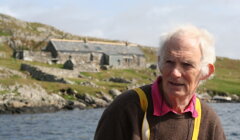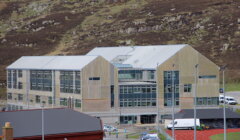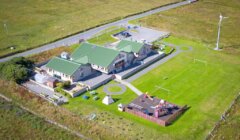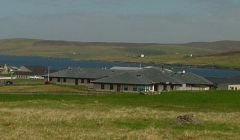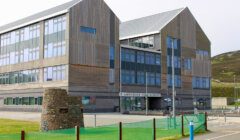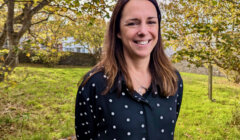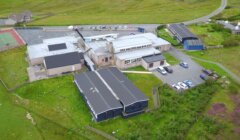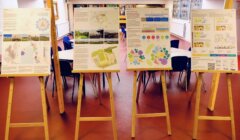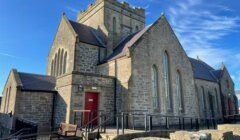Education / Number of children at primary schools on the decline
It comes as Lerwick’s two primary schools are set to fall under the Shetland-wide teacher staffing levels calculation from August next year
THE NUMBER of children on the primary school roll in Shetland is expected to drop by more than 130 over the next three years.
Figures presented to a meeting of Shetland Islands Council’s (SIC) education and families committee on Monday showed that there were 1,758 children on the roll in 2023/24, but this is estimated to drop to 1,662 in 2026/27.
In 2022/3 the number was 1,798.
It comes as the SIC approved extending the primary teacher staffing levels calculation – used to determine numbers of classes – for all settings in Shetland from August 2025, although this will not change anything for most primaries.
Since 2012 every primary school in Shetland – apart from the larger Bell’s Brae and Sound in Lerwick – have used the calculation to determine the number of classes in the building.
But numbers are also decreasing at the two Lerwick primary schools, which led to three full-time equivalent jobs going at the two schools in 2023/24.
Monday’s decision means both Lerwick schools continue to reduce their teacher numbers from August this year before fully adopting the authority-wide staffing calculation from August 2025.
The two Lerwick primaries have sat outwith the calculation in recent years so both can automatically receive two probationer teachers a year.
Figures show that the roll at Sound Primary School will have fallen by 149 between 2014 and 2024. For Bell’s Brae that figure is 64.
Looking at maximum class sizes in primaries is part of a savings review.
Quality improvement officer James Johnston told Monday’s meeting that the change should provide “clarity, fairness and equity” across schools.
He was asked why the overall roll may be falling, with Johnston suggesting it was likely to be a matter relating to Shetland’s birth rate.
Become a member of Shetland News
While the highest drop has been experienced in Lerwick, he said there is no evidence of “mass depopulation” from the town.
Johnston added that the SIC looks at projected school rolls as well as wider matters such as future housing developments.
But with two large housing projects set to bring hundreds of new homes at Staney Hill and the Knab on the horizon, Lerwick North and Bressay councillor Stephen Leask asked if changing the process for teaching numbers was “regressive” given there could be more families moving to town in the coming years.
Johnston said Staney Hill for example would be phased in over 10 to 15 years so it would not be an immediate rush.
He also referred to the new Hjaltand Housing Association development in Scalloway, which only resulted in one new primary pupil and three nursery bairns enrolling at the village’s school.
West councillor Liz Peterson sought for the primary teacher staffing calculation to be implemented across every school by August 2024 rather 2025, to ensure “equity” across Shetland as soon as possible, but she lost out in a vote after the meeting had heard of the difficulties in introducing it quickly.
Meanwhile the council makes a bid to the General Teaching Council for Scotland for probationer teachers every year.
Given the SIC’s workforce challenges, probationers allocated to Shetland may be required to fill vacancies in other settings.
Councillors were told that therefore the traditional annual four probationer teacher allocation to the Lerwick primaries – which has been implemented automatically – is not sustainable when their school rolls are falling.
The report also said that due to the falling rolls and adoption of the primary teacher staffing calculation, there is likely to be composite classes in the future in Bell’s Brae and Sound – which is in place at other primaries.
Johnston told councillors it was important to remain engaged with parents over the issue.
He said composites can have benefits and can give headteachers flexibility on class groupings.
However, councillor Leask said parents have had some concern over the matter.
Become a member of Shetland News
Shetland News is asking its many readers to consider paying for membership to get additional features and services: -
- Remove non-local ads;
- Bookmark posts to read later;
- Exclusive curated weekly newsletter;
- Hide membership messages;
- Comments open for discussion.
If you appreciate what we do and feel strongly about impartial local journalism, then please become a member of Shetland News by either making a single payment, or setting up a monthly, quarterly or yearly subscription.






